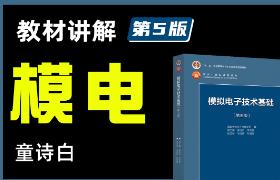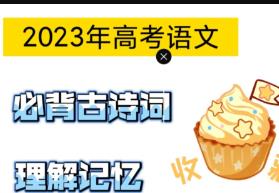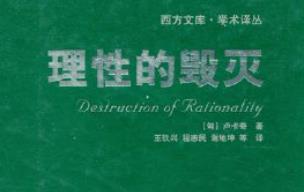- Unit 1 How can we become good learners?Period 1
- Unit 1 How can we become good learners?Period 2
- Unit 1 How can we become good learners?Period 3
- Unit 1 How can we become good learners?Period 4
- Unit 2 I think that mooncakes are delicious. Period 1
- Unit 2 I think that mooncakes are delicious. Period 2
- Unit 2 I think that mooncakes are delicious. Period 3
- Unit 2 I think that mooncakes are delicious. Period 4
- Unit 3 Could you please tell me where the restrooms are_ Period 1
- Unit 3 Could you please tell me where the restrooms are_ Period 2
- Unit 3 Could you please tell me where the restrooms are_ Period 3
- Unit 3 Could you please tell me where the restrooms are_ Period 4
- Unit 4 I used to be afraid of the dark Period 1
- Unit 4 I used to be afraid of the dark Period 2
- Unit 4 I used to be afraid of the dark Period 3
- Unit 4 I used to be afraid of the dark Period 4
- Unit 5 What are the shirts made of?Period 1
- Unit 5 What are the shirts made of?Period 2
- Unit 5 What are the shirts made of?Period 3
- Unit 5 What are the shirts made of?Period 4
- Unit 6 When was it invented Period 1
- Unit 6 When was it invented Period 2
- Unit 6 When was it invented Period 3
- Unit 6 When was it invented Period 4
- Unit 7 Teenagers should be allowed to choose their own clothes P1
- Unit 7 Teenagers should be allowed to choose their own clothes P2
- Unit 7 Teenagers should be allowed to choose their own clothes P3
- Unit 7 Teenagers should be allowed to choose their own clothes P4
- 期中复习指导1--听说能力的提升(上)
- 期中复习指导2--听说能力的提升(下)
- 期中复习指导3--阅读能力的提升
- 期中复习指导4--写作能力的提升
- Unit 8 It must belong to Carla P1
- Unit 8 It must belong to Carla P2
- Unit 8 It must belong to Carla P3
- Unit 8 It must belong to Carla P4
- Unit 9 I like music that I can dance to P1
- Unit 9 I like music that I can dance to P2
- Unit 9 I like music that I can dance to P3
- Unit 9 I like music that I can dance to P4
- Unit 10 You‘re supposed to shake hands P1
- Unit 10 You‘re supposed to shake hands P2
- Unit 10 You‘re supposed to shake hands P3
- Unit 10 You‘re supposed to shake hands P4
- Unit 11 Sad movies make me cry P1
- Unit 11 Sad movies make me cry P2
- Unit 11 Sad movies make me cry P3
- Unit 11 Sad movies make me cry P4
- Unit 12 Life is full of the unexpected P1
- Unit 12 Life is full of the unexpected P2
- Unit 12 Life is full of the unexpected P3
- Unit 12 Life is full of the unexpected P4
- Unit 13 We’re trying to save the earth P1
- Unit 13 We’re trying to save the earth P2
- Unit 13 We’re trying to save the earth P3
- Unit 13 We’re trying to save the earth P4
- Unit 14 I remember meeting all of you in Grade 7 P1
- Unit 14 I remember meeting all of you in Grade 7 P2
- Unit 14 I remember meeting all of you in Grade 7 P3
- Unit 14 I remember meeting all of you in Grade 7 P4
- 期末复习指导1-词汇运用能力的提升
- 期末复习指导2-阅读能力的提升(上)
- 期末复习指导3-阅读能力的提升(下)
- 期末复习指导4-写作能力的提升
九年级英语全一册课程精讲
一、Unit 1 How can we become good learners?
重点单词
textbook:课本,教材。例句:We need to bring our textbooks to class.(我们需要把课本带到课堂上。)
conversation:交谈,谈话。常用于短语 “have a conversation with sb.”(与某人交谈),例如:I had a wonderful conversation with my teacher about my future plans.(我和我的老师就我未来的计划进行了一次愉快的交谈。)
aloud:大声地;出声地。和 “loud”(侧重声音响亮)以及 “loudly”(侧重喧闹、嘈杂)有所区别。如:Please read aloud so that everyone can hear you.(请大声朗读,以便每个人都能听见你。)
重点短语
by reading the textbook:通过阅读课本。“by + doing sth.” 表示 “通过某种方式”,是一种常见的表达方法。
make word cards:制作单词卡片。这是一种学习单词的有效方法。
重点语法
by + 动名词结构:在句子中作方式状语,用来回答 “how” 引导的问句。例如:How do you improve your writing skills? By writing diaries.(你是如何提高你的写作技巧的?通过写日记。)
二、Unit 2 I think that mooncakes are delicious!
重点单词
stranger:陌生人;外地人。例句:Don't talk to strangers.(不要和陌生人说话。)
relative:亲属;亲戚。如:I have a lot of relatives in my hometown.(我在家乡有很多亲戚。)
pound:磅;英镑。既可以表示重量单位,也可以是货币单位。
重点短语
put on:增加(体重);穿上。表示 “增加体重” 时,反义词是 “lose weight”。例如:I've put on five pounds during the Spring Festival.(我在春节期间胖了五磅。)
lay out:摆开;布置。例句:My mother laid out a lot of delicious food on the table.(我妈妈在桌子上摆了很多美味的食物。)
重点语法
宾语从句:本单元重点学习 that 引导的宾语从句,that 在句中通常可以省略。例如:I think (that) mooncakes are delicious.(我认为月饼很好吃。)在宾语从句中,从句的时态要和主句的时态保持适当的呼应关系。
三、Unit 3 Could you please tell me where the restrooms are?
重点单词
restroom:(美)洗手间;公共厕所。这是比较委婉的说法,类似的还有 “washroom”“bathroom”(在美式英语中有洗手间的意思)。
bookstore:书店。例句:I bought a new novel in the bookstore yesterday.(我昨天在书店买了一本新小说。)
stamp:邮票;印章。“collect stamps” 意思是 “集邮”。
重点短语
Excuse me, could you tell me...?:打扰一下,你能告诉我…… 吗?这是一个用于问路或询问信息的常用句型。
between... and...:在…… 和…… 之间。例如:The library is between the school and the park.(图书馆在学校和公园之间。)
重点语法
宾语从句(特殊疑问句作宾语):当宾语从句是特殊疑问句时,要注意从句的语序要用陈述句语序。例如:Could you please tell me where the restrooms are?(你能告诉我洗手间在哪里吗?)而不是 “Could you please tell me where are the restrooms?”
四、Unit 4 I used to be afraid of the dark.
重点单词
humorous:有幽默感的;滑稽有趣的。和 “funny” 意思相近,但 “humorous” 更强调有幽默感。
silent:不说话的;沉默的。常用于短语 “keep silent”(保持沉默)。
helpful:有用的;有帮助的。例句:You are really helpful. Thank you for your advice.(你真的很有帮助。感谢你的建议。)
重点短语
used to:过去常常。后接动词原形,用来表示过去的习惯或状态,现在已经不存在了。例如:I used to play football every day after school.(我过去每天放学后都踢足球。)
be afraid of:害怕。可以接名词、代词或动名词。例如:She is afraid of snakes.(她害怕蛇。)
重点语法
used to 的用法及句型变化:
否定句:在 used 后加 not,也可以写成 didn't use to。例如:I didn't use to like reading, but now I do.(我过去不喜欢阅读,但现在喜欢了。)
疑问句:把 used 提前,或者用 “Did...use to...” 的形式。例如:Used you to swim in the river? 或 Did you use to swim in the river?(你过去常在河里游泳吗?)
五、Unit 5 What are the shirts made of?
重点单词
material:材料;原料。例句:What kind of material is this dress made of?(这条裙子是由什么材料制成的?)
product:产品;制品。例如:This company produces a lot of high - quality products.(这家公司生产很多高质量的产品。)
process:过程;工序;加工。如:Making paper is a complex process.(造纸是一个复杂的过程。)
重点短语
be made of/from/in/by:
“be made of” 表示 “由…… 制成(能看出原材料)”,例如:The table is made of wood.(这张桌子是用木头做的。)
“be made from” 表示 “由…… 制成(看不出原材料)”,例如:Wine is made from grapes.(葡萄酒是由葡萄制成的。)
“be made in” 表示 “在…… 地方制造”,例如:This car is made in Germany.(这辆车是在德国制造的。)
“be made by” 表示 “由……(人)制造”,例如:This painting was made by a famous artist.(这幅画是由一位著名的艺术家画的。)
重点语法
一般现在时的被动语态:其结构是 “am/is/are + 过去分词”。例如:The toys are made in this factory.(这些玩具是在这个工厂制造的。)在被动语态中,动作的执行者可以用 “by...” 引出,也可以省略。
六、Unit 6 When was it invented?
重点单词
invent:发明;创造。例句:Edison invented the light bulb.(爱迪生发明了电灯泡。)
operate:操作;运转。“operate on sb.” 意思是 “给某人做手术”。
remain:保持不变;剩余。例如:A lot of problems remain to be solved.(许多问题有待解决。)
重点短语
by accident:偶然;意外地。例句:I met my old friend by accident in the street.(我在街上偶然遇见了我的老朋友。)
take place:发生;出现。主要指有计划地发生,没有被动语态。与 “happen”(强调偶然性)有所区别。
重点语法
一般过去时的被动语态:结构是 “was/were + 过去分词”。例如:The telephone was invented by Bell.(电话是由贝尔发明的。)在被动语态的句子中,要注意 be 动词的时态变化和主语的单复数保持一致。
七、Unit 7 Teenagers should be allowed to choose their own clothes.
重点单词
license:证;证件。例如:You need a driver's license to drive a car.(你需要驾照才能开车。)
safety:安全;安全性。例句:Safety is the most important thing when you cross the road.(你过马路的时候,安全是最重要的。)
educate:教育;教导。例如:Parents should educate their children to be polite.(父母应该教育他们的孩子要有礼貌。)
重点短语
be allowed to do sth.:被允许做某事。这是一个含有情态动词被动语态的短语。例如:Students should be allowed to express their own opinions.(学生应该被允许表达他们自己的意见。)
get in the way of:妨碍;挡…… 的路。例句:His hobby sometimes gets in the way of his study.(他的爱好有时候妨碍他的学习。)
重点语法
含有情态动词的被动语态:结构是 “情态动词 + be + 过去分词”。例如:Teenagers should be allowed to choose their own clothes.(青少年应该被允许选择他们自己的衣服。)这种结构强调动作的执行者不是句子的主语,而是另有其人,并且动作的执行受到情态动词所表达的情感或态度的限制。
八、Unit 8 It must belong to Carla.
重点单词
attend:出席;参加。例句:I will attend a meeting tomorrow.(我明天要参加一个会议。)
valuable:很有用的;宝贵的。例如:Time is a valuable resource.(时间是一种宝贵的资源。)
pink:粉红色的;粉红色。例句:She likes to wear pink clothes.(她喜欢穿粉红色的衣服。)
重点短语
belong to:属于。这个短语没有被动语态,后接名词或代词宾格。例如:This book belongs to me.(这本书属于我。)
make up:编造(故事、谎言等);组成;化妆。例如:Don't make up excuses for your mistakes.(不要为你的错误编造借口。)
重点语法
情态动词表推测:
must 表示 “一定;肯定”,用于肯定句中,推测的可能性很大。例如:The light is on. He must be at home.(灯亮着。他一定在家。)
could/might 表示 “可能”,用于肯定句中,推测的可能性比 must 小。例如:It could/might rain tomorrow.(明天可能会下雨。)
can't 表示 “不可能”,用于否定句中。例如:She can't be at school because she is ill.(她不可能在学校,因为她生病了。)
九、Unit 9 I like music that I can dance to.
重点单词
prefer:更喜欢;宁愿。常用结构是 “prefer sth. to sth.”(与…… 相比更喜欢……)或 “prefer doing sth. to doing sth.”(宁愿做某事而不愿做某事)。例如:I prefer tea to coffee.(与咖啡相比,我更喜欢茶。)
lyrics:歌词。例句:I like the song because of its beautiful lyrics.(我喜欢这首歌是因为它优美的歌词。)
smooth:悦耳的;平滑的。例如:The music has a smooth rhythm.(这音乐有悦耳的节奏。)
重点短语
dance to:随着…… 跳舞。例如:I like music that I can dance to.(我喜欢我能跟着跳舞的音乐。)
in that case:既然那样;假使那样的话。例句:In that case, we should leave early.(既然那样,我们应该早点离开。)
重点语法
定语从句(that/which 引导):在复合句中,修饰名词或代词的从句叫定语从句。that 和 which 在定语从句中可以指代物,在从句中作主语或宾语。例如:I like music that/which can make me happy.(我喜欢能让我开心的音乐。)当从句中的宾语是 that 或 which 时,可以省略。
十、Unit 10 You're supposed to shake hands.
重点单词
custom:风俗;习俗。例句:Different countries have different customs.(不同的国家有不同的习俗。)
greet:和…… 打招呼;迎接。例如:We greeted each other with a smile.(我们微笑着互相打招呼。)
relaxed:放松的;自在的。例句:He looks very relaxed after a long vacation.(经过一个长假期后,他看起来很放松。)
重点短语
be supposed to:应该;被期望。后接动词原形,相当于 “should”。例如:You're supposed to arrive on time.(你应该准时到达。)
drop by:顺便访问;随便进入。例句:I often drop by my friend's house o
一、Unit 1 How can we become good learners?
重点单词
textbook:课本,教材。例句:We need to bring our textbooks to class.(我们需要把课本带到课堂上。)
conversation:交谈,谈话。常用于短语 “have a conversation with sb.”(与某人交谈),例如:I had a wonderful conversation with my teacher about my future plans.(我和我的老师就我未来的计划进行了一次愉快的交谈。)
aloud:大声地;出声地。和 “loud”(侧重声音响亮)以及 “loudly”(侧重喧闹、嘈杂)有所区别。如:Please read aloud so that everyone can hear you.(请大声朗读,以便每个人都能听见你。)
重点短语
by reading the textbook:通过阅读课本。“by + doing sth.” 表示 “通过某种方式”,是一种常见的表达方法。
make word cards:制作单词卡片。这是一种学习单词的有效方法。
重点语法
by + 动名词结构:在句子中作方式状语,用来回答 “how” 引导的问句。例如:How do you improve your writing skills? By writing diaries.(你是如何提高你的写作技巧的?通过写日记。)
二、Unit 2 I think that mooncakes are delicious!
重点单词
stranger:陌生人;外地人。例句:Don't talk to strangers.(不要和陌生人说话。)
relative:亲属;亲戚。如:I have a lot of relatives in my hometown.(我在家乡有很多亲戚。)
pound:磅;英镑。既可以表示重量单位,也可以是货币单位。
重点短语
put on:增加(体重);穿上。表示 “增加体重” 时,反义词是 “lose weight”。例如:I've put on five pounds during the Spring Festival.(我在春节期间胖了五磅。)
lay out:摆开;布置。例句:My mother laid out a lot of delicious food on the table.(我妈妈在桌子上摆了很多美味的食物。)
重点语法
宾语从句:本单元重点学习 that 引导的宾语从句,that 在句中通常可以省略。例如:I think (that) mooncakes are delicious.(我认为月饼很好吃。)在宾语从句中,从句的时态要和主句的时态保持适当的呼应关系。
三、Unit 3 Could you please tell me where the restrooms are?
重点单词
restroom:(美)洗手间;公共厕所。这是比较委婉的说法,类似的还有 “washroom”“bathroom”(在美式英语中有洗手间的意思)。
bookstore:书店。例句:I bought a new novel in the bookstore yesterday.(我昨天在书店买了一本新小说。)
stamp:邮票;印章。“collect stamps” 意思是 “集邮”。
重点短语
Excuse me, could you tell me...?:打扰一下,你能告诉我…… 吗?这是一个用于问路或询问信息的常用句型。
between... and...:在…… 和…… 之间。例如:The library is between the school and the park.(图书馆在学校和公园之间。)
重点语法
宾语从句(特殊疑问句作宾语):当宾语从句是特殊疑问句时,要注意从句的语序要用陈述句语序。例如:Could you please tell me where the restrooms are?(你能告诉我洗手间在哪里吗?)而不是 “Could you please tell me where are the restrooms?”
四、Unit 4 I used to be afraid of the dark.
重点单词
humorous:有幽默感的;滑稽有趣的。和 “funny” 意思相近,但 “humorous” 更强调有幽默感。
silent:不说话的;沉默的。常用于短语 “keep silent”(保持沉默)。
helpful:有用的;有帮助的。例句:You are really helpful. Thank you for your advice.(你真的很有帮助。感谢你的建议。)
重点短语
used to:过去常常。后接动词原形,用来表示过去的习惯或状态,现在已经不存在了。例如:I used to play football every day after school.(我过去每天放学后都踢足球。)
be afraid of:害怕。可以接名词、代词或动名词。例如:She is afraid of snakes.(她害怕蛇。)
重点语法
used to 的用法及句型变化:
否定句:在 used 后加 not,也可以写成 didn't use to。例如:I didn't use to like reading, but now I do.(我过去不喜欢阅读,但现在喜欢了。)
疑问句:把 used 提前,或者用 “Did...use to...” 的形式。例如:Used you to swim in the river? 或 Did you use to swim in the river?(你过去常在河里游泳吗?)
五、Unit 5 What are the shirts made of?
重点单词
material:材料;原料。例句:What kind of material is this dress made of?(这条裙子是由什么材料制成的?)
product:产品;制品。例如:This company produces a lot of high - quality products.(这家公司生产很多高质量的产品。)
process:过程;工序;加工。如:Making paper is a complex process.(造纸是一个复杂的过程。)
重点短语
be made of/from/in/by:
“be made of” 表示 “由…… 制成(能看出原材料)”,例如:The table is made of wood.(这张桌子是用木头做的。)
“be made from” 表示 “由…… 制成(看不出原材料)”,例如:Wine is made from grapes.(葡萄酒是由葡萄制成的。)
“be made in” 表示 “在…… 地方制造”,例如:This car is made in Germany.(这辆车是在德国制造的。)
“be made by” 表示 “由……(人)制造”,例如:This painting was made by a famous artist.(这幅画是由一位著名的艺术家画的。)
重点语法
一般现在时的被动语态:其结构是 “am/is/are + 过去分词”。例如:The toys are made in this factory.(这些玩具是在这个工厂制造的。)在被动语态中,动作的执行者可以用 “by...” 引出,也可以省略。
六、Unit 6 When was it invented?
重点单词
invent:发明;创造。例句:Edison invented the light bulb.(爱迪生发明了电灯泡。)
operate:操作;运转。“operate on sb.” 意思是 “给某人做手术”。
remain:保持不变;剩余。例如:A lot of problems remain to be solved.(许多问题有待解决。)
重点短语
by accident:偶然;意外地。例句:I met my old friend by accident in the street.(我在街上偶然遇见了我的老朋友。)
take place:发生;出现。主要指有计划地发生,没有被动语态。与 “happen”(强调偶然性)有所区别。
重点语法
一般过去时的被动语态:结构是 “was/were + 过去分词”。例如:The telephone was invented by Bell.(电话是由贝尔发明的。)在被动语态的句子中,要注意 be 动词的时态变化和主语的单复数保持一致。
七、Unit 7 Teenagers should be allowed to choose their own clothes.
重点单词
license:证;证件。例如:You need a driver's license to drive a car.(你需要驾照才能开车。)
safety:安全;安全性。例句:Safety is the most important thing when you cross the road.(你过马路的时候,安全是最重要的。)
educate:教育;教导。例如:Parents should educate their children to be polite.(父母应该教育他们的孩子要有礼貌。)
重点短语
be allowed to do sth.:被允许做某事。这是一个含有情态动词被动语态的短语。例如:Students should be allowed to express their own opinions.(学生应该被允许表达他们自己的意见。)
get in the way of:妨碍;挡…… 的路。例句:His hobby sometimes gets in the way of his study.(他的爱好有时候妨碍他的学习。)
重点语法
含有情态动词的被动语态:结构是 “情态动词 + be + 过去分词”。例如:Teenagers should be allowed to choose their own clothes.(青少年应该被允许选择他们自己的衣服。)这种结构强调动作的执行者不是句子的主语,而是另有其人,并且动作的执行受到情态动词所表达的情感或态度的限制。
八、Unit 8 It must belong to Carla.
重点单词
attend:出席;参加。例句:I will attend a meeting tomorrow.(我明天要参加一个会议。)
valuable:很有用的;宝贵的。例如:Time is a valuable resource.(时间是一种宝贵的资源。)
pink:粉红色的;粉红色。例句:She likes to wear pink clothes.(她喜欢穿粉红色的衣服。)
重点短语
belong to:属于。这个短语没有被动语态,后接名词或代词宾格。例如:This book belongs to me.(这本书属于我。)
make up:编造(故事、谎言等);组成;化妆。例如:Don't make up excuses for your mistakes.(不要为你的错误编造借口。)
重点语法
情态动词表推测:
must 表示 “一定;肯定”,用于肯定句中,推测的可能性很大。例如:The light is on. He must be at home.(灯亮着。他一定在家。)
could/might 表示 “可能”,用于肯定句中,推测的可能性比 must 小。例如:It could/might rain tomorrow.(明天可能会下雨。)
can't 表示 “不可能”,用于否定句中。例如:She can't be at school because she is ill.(她不可能在学校,因为她生病了。)
九、Unit 9 I like music that I can dance to.
重点单词
prefer:更喜欢;宁愿。常用结构是 “prefer sth. to sth.”(与…… 相比更喜欢……)或 “prefer doing sth. to doing sth.”(宁愿做某事而不愿做某事)。例如:I prefer tea to coffee.(与咖啡相比,我更喜欢茶。)
lyrics:歌词。例句:I like the song because of its beautiful lyrics.(我喜欢这首歌是因为它优美的歌词。)
smooth:悦耳的;平滑的。例如:The music has a smooth rhythm.(这音乐有悦耳的节奏。)
重点短语
dance to:随着…… 跳舞。例如:I like music that I can dance to.(我喜欢我能跟着跳舞的音乐。)
in that case:既然那样;假使那样的话。例句:In that case, we should leave early.(既然那样,我们应该早点离开。)
重点语法
定语从句(that/which 引导):在复合句中,修饰名词或代词的从句叫定语从句。that 和 which 在定语从句中可以指代物,在从句中作主语或宾语。例如:I like music that/which can make me happy.(我喜欢能让我开心的音乐。)当从句中的宾语是 that 或 which 时,可以省略。
十、Unit 10 You're supposed to shake hands.
重点单词
custom:风俗;习俗。例句:Different countries have different customs.(不同的国家有不同的习俗。)
greet:和…… 打招呼;迎接。例如:We greeted each other with a smile.(我们微笑着互相打招呼。)
relaxed:放松的;自在的。例句:He looks very relaxed after a long vacation.(经过一个长假期后,他看起来很放松。)
重点短语
be supposed to:应该;被期望。后接动词原形,相当于 “should”。例如:You're supposed to arrive on time.(你应该准时到达。)
drop by:顺便访问;随便进入。例句:I often drop by my friend's house o
全站精品课程推荐!
The most popular courses











